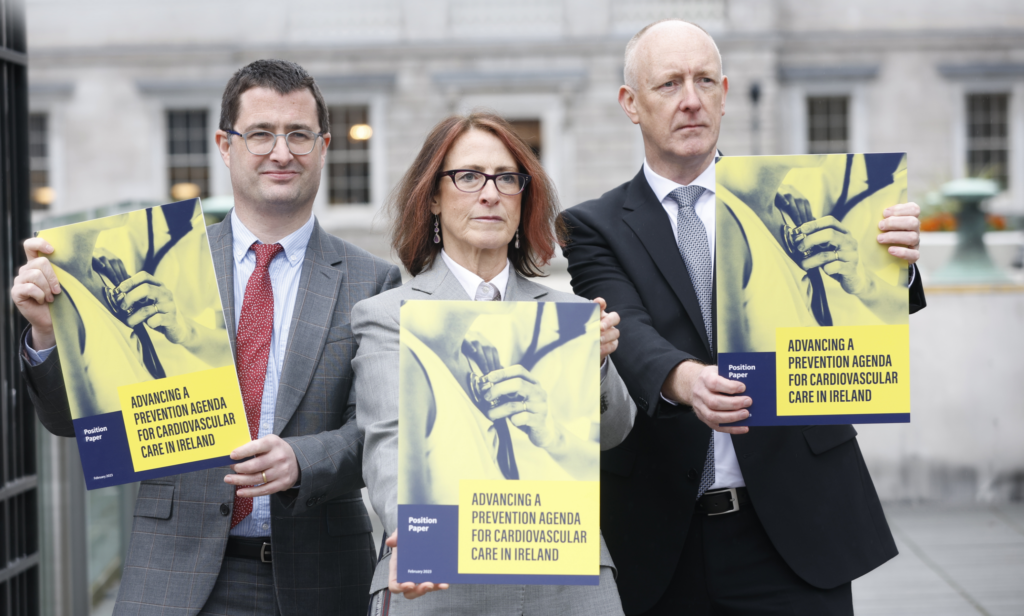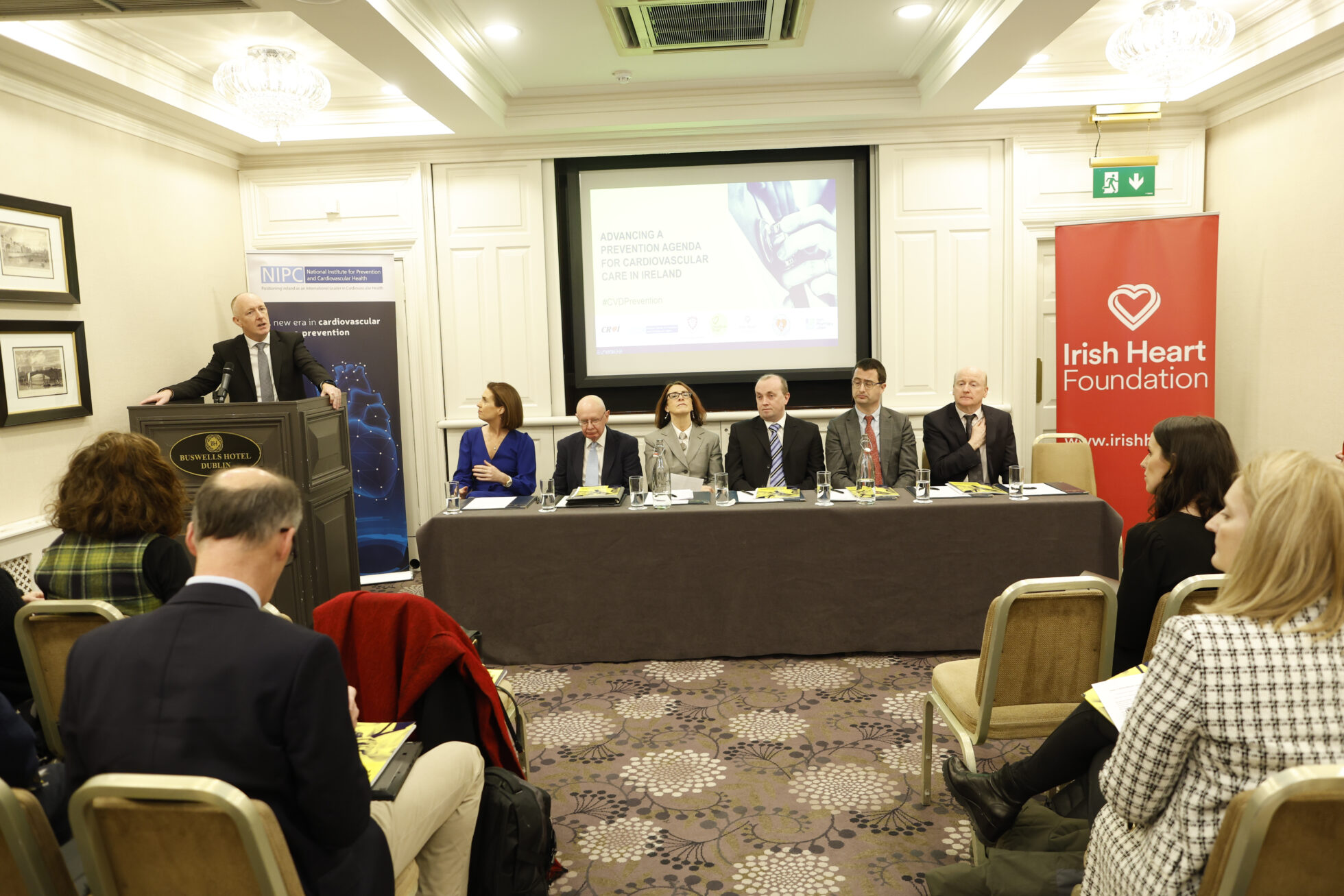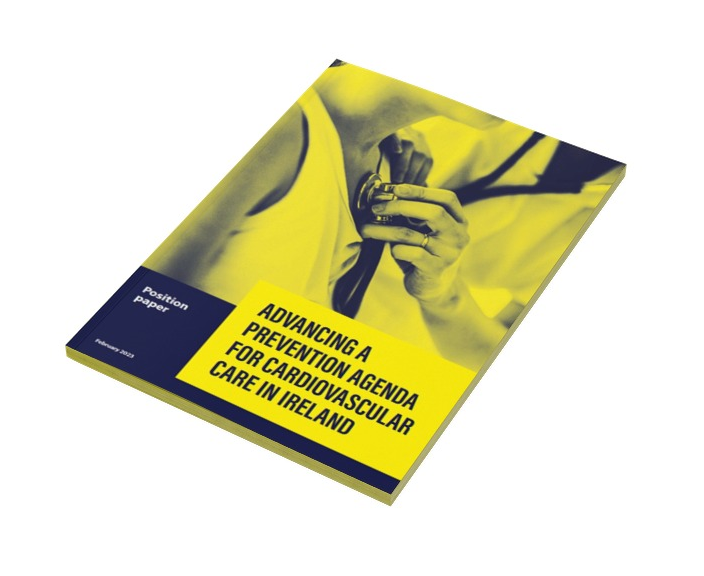Home » Preventing cardiovascular disease in Ireland


The Position Paper was commissioned by the National Institute for Prevention and Cardiovascular Health (NIPC) in partnership with the National CVD Prevention Council. NIPC is an independent medical research and education institute based in the Croí Heart & Stroke Centre, Galway.
The National CVD Prevention Council is a collaboration between the Irish Heart Foundation, NIPC and a number of other national stakeholders, including the Irish College of General Practice, the Irish Cardiac Society, the Irish Nurses Cardiovascular Association and Irish Pharmacy Union.
The Position Paper was researched and co-ordinated by the Health Policy Partnership, an independent research organisation and was guided by an expert project steering committee who gave voluntarily of their time and held complete independent editorial control.
Virtually every article on CVD written in the last 30 years opens with the same paragraph stating that ‘CVD is the leading cause of death and disability . . .’ Is it not reasonable therefore to conclude that if nothing has changed in this stark announcement over the past decades, we can only infer that as a global community we have come to accept an unacceptable level of complacency about this disease burden? Rather, we have placed an almost exclusive focus on acute intervention and care at the cost of earlier intervention and prevention, even when the science suggests that up to 80% of premature cardiovascular disease is preventable.
In 2022, 155 people died in Irish road collisions. Ireland now has its fifth road safety strategy (2021 – 2030) with a target to reduce deaths and serious injury by 50% and a strategy Vision Zero to record no road deaths by 2050. The Road Safety Authority is a mandated authority, resourced at Ministerial level to reduce road deaths. Over 9,000 people die from CVD in Ireland each year, and like road accidents, the majority are preventable. Yet, despite the scale and burden of this disease, we have only had two cardiovascular health strategies — the most recent expired in 2019 and not only has it not been renewed, but it was also not even evaluated. Surely, we must demand a national strategy driven by a mandated authority with an appropriate level of resourcing if we are serious about the cardiovascular health of our nation?
Download Advancing Prevention Agenda for Cardiovascular Care in Ireland“This Position Paper calls for a reorientation of our healthcare system — prioritising cardiovascular disease prevention which will save thousands of lives a year and avoid considerable costs to society.”

Figure 1: Opportunities for prevention along the CVC continuum

Click on the image to see in the full size
Source: Advancing a prevention agenda for cardiovascular care in Ireland, February 2023
The paper highlights gaping gaps along the whole CVD continuum where low-cost interventions could massively improve earlier detection and earlier diagnosis of a myriad of heart and brain conditions, thereby slowing or even halting disease progression, and ultimately saving thousands of lives. Simple tests like a blood pressure measure for hypertension; a pulse check for atrial fibrillation; a blood test for high cholesterol, diabetes, and heart failure; or a simple stethoscope examination for valve disease — if these interventions were systematically administered in a structured way at certain life stages, they could literally save lives.
Atherosclerotic Disease (ASCVD) is, I believe, the cancer of the heart world — slow burning and insidious. Among the key drivers is high cholesterol. We can measure it and treat it at a very low cost. When it comes to the low hanging fruit or quick wins, we need to screen our young people for inherited high cholesterol (Familial Hypercholesterolaemia (FH)). As many as 1 in 200-250 Irish people have this potentially lethal condition, which is a significant cause of premature death. Yet, we do not have a national screening programme or a defined pathway to specialist care, despite the fact that, in European countries like the Czech Republic, all children are tested for FH at age five.
The focus on acute care in Ireland’s healthcare system is unsustainable. A preventive approach to CVD is needed at all stages of the disease, from early identification and timely treatment through to comprehensive cardiac rehabilitation. We need a new vision for CVD in Ireland that builds on existing policies, but it must have a greater focus on prevention. Recognising the progress that has been made in heart and stroke care through Sláintecare, the National Chronic Disease Management Programme and National Clinical Programmes, we need to build on this momentum and urgently invest in slowing, or even halting disease progression.
Among the many recommendations, the Position Paper calls for specific actions by policymakers such as:
To support these recommendations, there is an urgent and long overdue need to expand the digital infrastructure to support electronic record keeping and sharing, rollout individual health identifiers, and introduce digital record-keeping in hospitals. The COVID pandemic has shown us the significant role patient-focused technologies can play, so eHealth must be central to all future plans and developments.
This Position Paper was developed to identify and drive the healthcare policy changes needed to improve the prevention and management of cardiovascular disease in Ireland, with a focus on ASCVD, heart failure and heart valve disease. Across Europe there is an awakening that the great strides that have been made in areas like cancer are because there is a European Cancer Strategy supported by formal national cancer plans, mobilised by a united community of patients, carers, healthcare professionals and policy makers.
It’s time we started to get our act together on heart disease and stroke!
Neil Johnson is the Chief Executive of Croí, the West of Ireland Cardiac & Stroke Foundation and the National Institute for Prevention and Cardiovascular Health. He is also the Executive Director of the Global Heart Hub and is an Honorary Clinical Fellow of the School of Medicine, University of Galway.
Neil Johnson

Chief Executive, Croí, the West of Ireland Cardiac & Stroke Foundation, and the National Institute for Prevention and Cardiovascular Health
Highlighted Articles